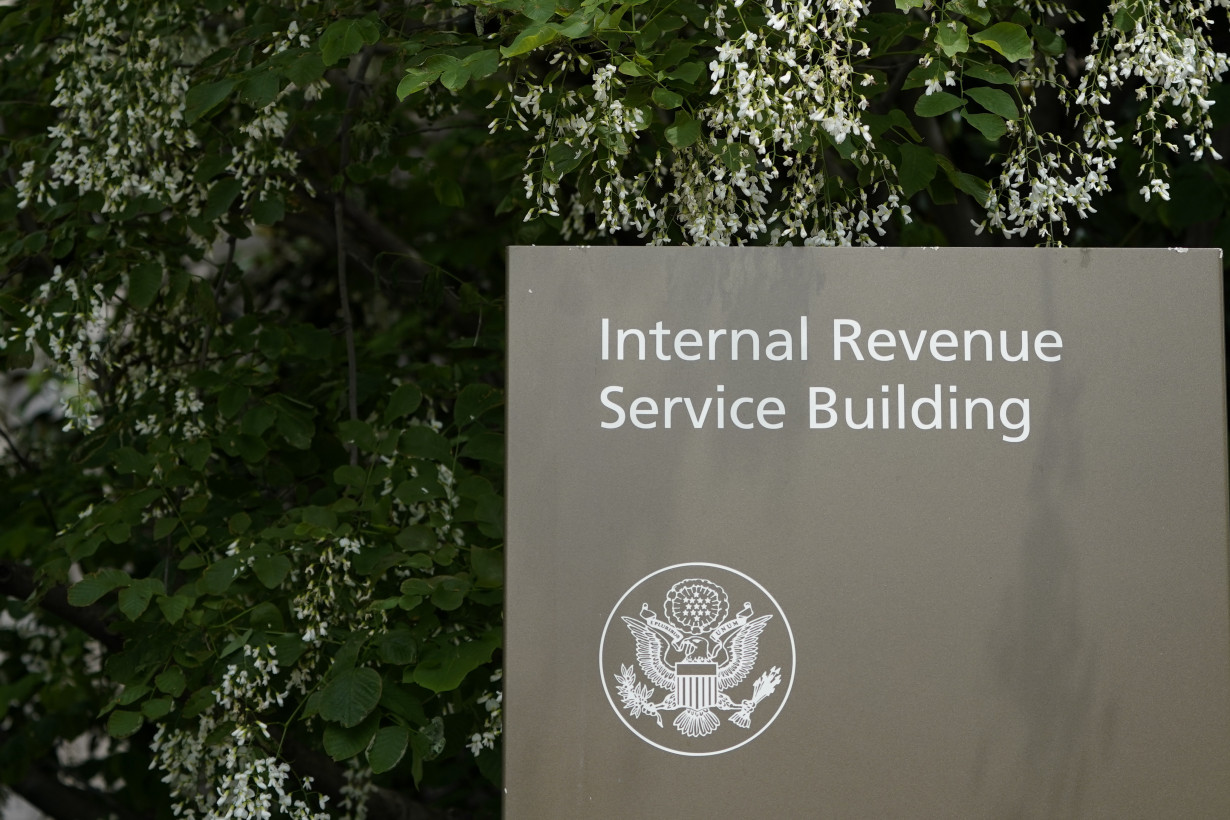WASHINGTON (AP) — As the nature of financial crime changes, with technology and AI increasingly used to perpetrate illegal acts, the IRS' crime fighting arm —IRS Criminal Investigation— is announcing a new program intended to improve how it interacts with financial institutions.
Called Feedback in Response to Strategic Threat —or CI-FIRST— the program unveiled Friday is intended to speed up subpoena requests, give banks better data on how to detect criminal activity and build out investigations faster and more efficiently.
Under the Bank Secrecy Act, banks and financial institutions are required to send over a variety of suspicious activity reports to the federal government after detecting potential money laundering or terrorist financing.
The goal for CI-FIRST is to help financial institutions more easily detect and report financial crimes tied to fentanyl trafficking, drug trafficking, human smuggling and other crimes — by streamlining subpoena requests and improving data-sharing with banks. IRS-CI Chief Guy Ficco said in a statement that “public-private partnerships thrive when everyone mutually benefits."
Also on Friday, IRS Criminal Investigation released new statistics highlighting how the agency has investigated financial crimes using Bank Secrecy Act data.
The agency found $21.1 billion in fraud tied to tax and financial crimes from 2022 to 2024, seized $8.2 billion in assets tied to criminal activity in the same period, and recouped $1.4 billion in restitution for crime victims, according to the agency.
“Behind all of these metrics are real crimes with real victims,” said Lauren Kohr, IRS-CI’s strategic engagement adviser. “A lot of times people look at BSA data or the Bank Secrecy Act as a regulatory requirement, but it’s really one of the sharpest tools law enforcement as a whole has to trace fraud illicit money and dismantle these criminal networks."
"And when illicit money moves, it’s these BSA reports," she said "that tell us the story.”
IRS-CI special agents ran an average of 966,900 searches annually against currency transaction reports. A currency transaction report, or CTR, is a financial document that banks are required to file with Treasury for any cash transaction exceeding $10,000 in a single day.
In the past three years, roughly 67% of cases opened by IRS-CI involved one or more currency transaction reports below $40,000, with half of currency transaction reports involving amounts less than $22,230.
Despite the majority of reports coming in below $40,000, a group of Republican lawmakers is pursing raising the threshold.
Georgia Rep. Barry Loudermilk and nine other House Republicans have sponsored a bill called the Financial Reporting Threshold Modernization Act, which would raise the currency transaction reporting and Suspicious Activity Reporting thresholds to $30,000 and $10,000, respectively, and index the CTR threshold for inflation every five years.
On April 1, the House Financial Services Subcommittee on National Security, Illicit Finance, and International Financial Institutions will hold a hearing on April 1 and the issue of CTR thresholds will come up.
Last December a Government Accountability Office report recommended Treasury help to “reduce the number of CTRs filed that are not used by law enforcement, such as by raising the reporting threshold or expanding criteria to allow for further exemptions.”
In addition to their financial crimes work, IRS Criminal Investigations has been called upon by the Trump administration to help with immigration enforcement.
Last month, Homeland Security Secretary Kristi Noem sent a request to Treasury Secretary Scott Bessent to borrow IRS Criminal Investigation workers to help with the immigration crackdown, according to a letter obtained by The Associated Press. It cites the IRS’s boost in funding, through the $80 billion infusion of funds the federal tax collection agency received under the Democrats’ Inflation Reduction Act has already been clawed back.

 Trump has begun another trade war. Here's a timeline of how we got here
Trump has begun another trade war. Here's a timeline of how we got here
 Canada's leader laments lost friendship with US in town that sheltered stranded Americans after 9/11
Canada's leader laments lost friendship with US in town that sheltered stranded Americans after 9/11
 Chinese EV giant BYD's fourth-quarter profit leaps 73%
Chinese EV giant BYD's fourth-quarter profit leaps 73%
 You're an American in another land? Prepare to talk about the why and how of Trump 2.0
You're an American in another land? Prepare to talk about the why and how of Trump 2.0
 Chalk talk: Star power, top teams and No. 5 seeds headline the women's March Madness Sweet 16
Chalk talk: Star power, top teams and No. 5 seeds headline the women's March Madness Sweet 16
 Purdue returns to Sweet 16 with 76-62 win over McNeese in March Madness
Purdue returns to Sweet 16 with 76-62 win over McNeese in March Madness








